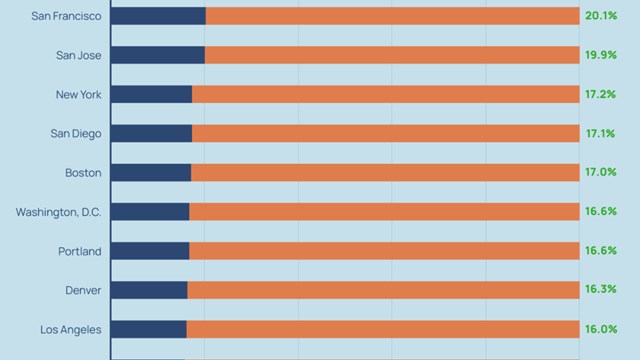Board members have a number of responsibilities and face many different challenges - and managing the building's finances is chief among them. But since most board members aren't trained financial professionals, what is the best way to make sure you're doing a proficient, effective, and thorough job? Having a good relationship with your accountant and financial advisor - as well as clearly defining and understanding their role - is essential, but board members must also be willing to learn about the basics of their co-op or condo's financial documents to ensure that their building is financially sound.
In order to take an active role in managing and keeping track of a building's finances, it's important for board members to familiarize themselves with the types of documents they may encounter in the financial statement. There are three major financial statements included in an annual report: the balance sheet, the income statement and the statement of cash flows.
"¢ Balance Sheet: This document is precisely what it sounds like: a sheet that tells you what you had and what you owed - your assets and your liabilities - all in one place and in easy-to-digest form. It illustrates your building's debts and obligations, as well as incoming funds, and helps you determine your bottom line.
"¢ Income Statement: This covers all your bills and expenses.
"¢ Statement of Cash Flows: This reports the cash receipts, cash payments, and the net change in cash resulting from the operating, financing and investing activities of a business during a period of time. This reconciles the income statement that is on an accrual basis back to changes in cash basis of accounting, according to Stephen Beer, an accountant with Czarnowski & Beer in Manhattan.
"¢ Notes to the Financial Statement: Provides a narrative and further explanation to specific financial issues in the financial statement.
The financial statement should also explain contract obligations, details on the mortgage, and note any pending lawsuits.
Another important document is the monthly management report (or monthly managing agent statement), which includes accounts receivable (billings to tenants, collections); cash disbursements showing that bills were paid; accounts payable showing the bills that need to be paid; the year-to-date budget, a comparison showing where the building is in the budget; bank reconciliation, showing receipts and disbursements reconciled to the bank; and copies of bank statements.
The financial audit is an in-depth, annual report of the co-op or condo's financial state. It includes disclosures of financial obligations and money owed to the building, income, expenses, and a listing of the various financial transactions within the year. The audited report is quite extensive, and takes several months to complete. Most audits are not available until April, so board members should rely on other financial documents, such as the monthly statement (includes cash receipts and expenditures) to get a picture of their financial situation throughout the year.
It is also important, according to Craig Schiller, an attorney with Schiller & Associates, PC in Manhattan, that there be an evaluation of the variation between the budgeted monthly income and expenses versus the actual monthly income and expenses.
According to Jeffery Shavelson, an accountant with Shavelson, Neuman, & Co. in East Meadow, NY, it's a good idea to do a comparison from one year to the next, and figure out the reasons for any changes in your budget or finances. Are utility prices on the rise? Are you budgeted for changes in expenses? An accountant can show you what to look for to determine where a problem may be. A good accountant should be able to enlighten and teach board members about budgeting skills and the process of handling finances. Shavelson sits down with board members and explains how a financial statement works. He goes over changes in the balance sheet, major expenditures, and receivables. An accountant can also assist in budget preparation, should you need assistance or guidance in this area.
"It's vital to have a free-flowing dialog between the board members and the accountant," says Mindy Eisenberg-Stark, CPA, CFE, located in White Plains, NY. Although most boards may meet with their accountant quarterly or even less frequently, she suggests that an accountant should also be available for any special projects about which your board might seek advice.
Boards who aren't well versed in the ins and outs of the various financial documents should invite their accountant to board meetings when necessary. The accountant can shed light on the important aspects of financial statements and documents, including what to look for, warning signs for management oversight, and analysis of data so the board can manage day-to-day operations of the building.
Communication with the shareholders is also important. Eisenberg-Stark recommends sending a copy of the annual financial statement to all shareholders. At the annual shareholders meeting, it's a good idea to have the accountant present to do a brief overview of the financial statement. The board might also want to send or make available the budget to interested shareholders.
It is also necessary to provide a disclosure of future capital expenses. This disclosure will indicate whether a study has been conducted and if so, whether there are contingent liabilities within the building. For instance, says Schiller, "If a co-op knows it will have to spend $1 million in the next six weeks to repair a roof, it must be disclosed."
Another way to communicate with the shareholders is to hold an informational meeting other than the shareholder's annual meeting. This can be a good place to discuss future projects the board is considering. The board may also want to gather shareholders in the unfortunate event of a fire, burglary, or other such occurrence and use the incident to discuss budgeted money. Many financial pros recommend publishing a newsletter for shareholders to keep them informed.
Shavelson advises that the board keep the lines of communication open with the managing agent as well. Perhaps tenant receivables are higher this year, but the board is unaware of the cause. Simply speaking with the managing agent could provide the answer.
Because the accountant is not constantly present, it's important for board members to take an active role in the financial aspects of their building. Eisenberg-Stark recommends that board members get an education from seminars and read articles on the subject.
"The board should be functioning on its own, using the monthly report to find any problems before the accountant notices them," says Beer. Because the accountant is only involved in the annual financial statements and not day-to-day activities, relying on your accountant to catch any improprieties can result in the board missing months' worth of problems.
Eisenberg-Stark offers a few instances during which a board should take action and consider refining its financial management methods:
"¢ The building is operating at a loss.
"¢ Reserve funds are low - the board may look at a different way to invest.
"¢ Receivables that are too high - might mean you need to do better, more efficient collection.
"¢ There is unusual fluctuation in year-to-year variances.
Shavelson suggests one way to be proactive about finances is to require board approval of bills before they are paid. This can eliminate the chance of money being used to pay false bills, paying bills twice, or overpaying a bill. He also advises that the board require two signatures on checks, so the board has more control over the way money is dispersed. With only one board member or the managing agent in charge, you could be leaving your building vulnerable to fraud.
Even active and involved boards are sometimes the victims of fraud - though boards with active participants are less likely to experience major losses than boards with passive members. According to Eisenberg-Stark, some warning signs that your co-op or condo's finances may be in trouble are:
"¢ Phone calls from vendors that bills have not been paid.
"¢ The mortgage being in arrears when it has already been paid.
"¢ CDs have matured, but you don't see a renewal notice.
"¢ There is reluctance on the part of management to provide documentation and information.
In the event of suspicious activity, contact the building's counsel and auditor and explain your concerns. "Have a certified fraud examiner conduct a forensic audit," advises Eisenberg-Stark. This type of audit goes beyond the scope of a regular audit by confirming or detecting fraud. It's usually targeted to a specific concern or concerns, but, says Eisenberg-Stark, "It should not be a witch hunt."
Beer advises doing a comparison to other buildings to see if your co-op or condo's finances are similar to other buildings. Then, he says, "Note the differences and reasons for them and work with the managing agent to fix problems."
To keep things in check, Beer recommends that boards conduct a periodic review. It's in the board's best interest to review financial documents on a monthly basis. Boards that are diligent about keeping track of finances and important documents are the ones less likely to experience fraud or theft. Staying on top of what's happening with the building's finances is the best way to prevent fraud in the first place. Waiting until there's an obvious problem may result in even more costly expenses and losses for the building.
Beer suggests that if your building is about to undergo some repair work, it might be a good idea to get a proposal on the job from someone other than the managing agent. This way, you can compare prices and make sure that you'll only be spending a fair amount for the job. He also suggests consulting the CNYC annual survey to compare your building's operating costs to those of other co-ops or condos.
Remember: Taking an active role in understanding your building's budget and financial documents will lessen your chances of experiencing fraud or theft, help keep the board in the know regarding financial issues, and improve the board's communications with the accountant or financial advisor. Don't wait until you've experienced a loss, or your building's finances are in question - work with your accountant and financial advisors and learn what you can do now to prevent any possible improprieties in the future.







Comments
Leave a Comment